Requiem for a Trans-Texan Journey
On Wednesday, a newfound will to churn infected my legs despite headwind and threateningly overcast skies. I had escaped Texas, and it was good.
Tell someone familiar with its size that you are crossing Texas on a bicycle, and she will scoff, "It seems to take forever just driving the thing." She is right. It takes the average driver about two days.
Still, you begin optimistically. What other choice do you have, with 1,000 miles of one state ahead of you? With disciplined thought, you think, it won’t be so bad. Look at Texas as though it is not one state, but several. There are said to be five terrains of Texas. Whether you see all of them, whatever variations you observe will make Texas seem not like one monotonous chunk, but several areas that will be refreshingly new as you transgress.
And they will be, kind of. But you will always know you are in Texas.
Begin in the northwestern part, and follow the desert until it’s not so deserted, down to Del Rio and east from there. The scenery, as another cyclist tells you, changes dramatically, and seeing other people becomes more common. You are briefly excited. The tumbleweeds cease to tumble and the Davis mountains arise, and you are refreshed by all that seems new.
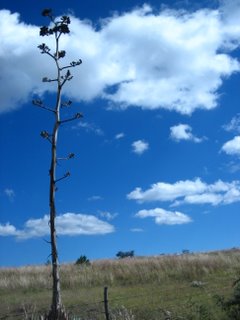
But you are still in Texas.
Follow the road east through the Hill Country, a terrain fraught with lush maple trees, rolling landscape and varied wildlife. What sorts of surprises might you find over the next hill? you will wonder.

Cruelly, disappointingly, the answer is always more Texas.
Farther east to Austin, which is considered by many conservative Texans to be the state’s Sodom and Gomorrah, a bastion of sin and abhorrent liberalism, you will feel excited about experiencing that which is un-Texan, and in a way, you will be sated.

But it’s still Texas.
Continue east through agricultural flatlands, through pine trees, alongside logging trucks, into swamplands and bayous, and there’s no way this could still be Texas, but it is, and you know it.
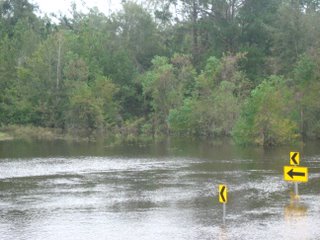
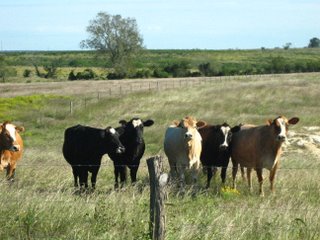
You know it because of the constancy of BBQ joints; of the Texas drawl or twang, depending on region; of tough jeans, flannel shirts, cowboy hats and boots; of big oil and big trucks and big cattle and big talk; of nighttime speed limits and desperately clever road signs. (One even played with typography: "LITTERIN IS UNLAWFUL," it read. Note also the absence of the "G" in the first word, to capture the Texas manner.)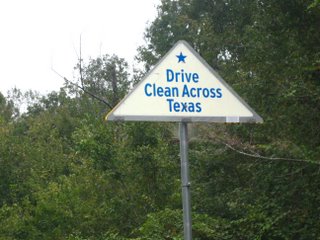
Of shameless self-celebration and an over-inflated sense of pride. If pride were an energy source, the world could run on Texas’s outflow of it for millennia. You will meet some incredibly nice people, of all kinds, but you will know they are Texans.
"I’m Jean, and I’m from Houston, Texas," declared one woman I met, as though providing required information at a meet-and-greet. It was her usual style of introduction, I surmised. I did not offer my place of origin outright, as I found it to be excessive. Jean found it necessary.
Every establishment in Texas is the best of its kind. I had the privilege of eating the best Tex-Mex cuisine in Austin, and cheaply.
Outsiders can have a tough time fitting in. One night, I spent an evening with some Texans, trying to shed my Yankee moniker like a fishing net. At a café where I dined, the non-native Texan who owned it had posted a sign that read, "I wasn’t born in Texas, but I got here as fast as I could." Was it the only way to ensure a steady local clientele?
If you are like me, you weren’t born in Texas, and you are here, but you’re getting the hell out.
The problem is, the more Texas you see, despite its constantly changing terrain, the more you realize it’s going to be a long time before you're free of it, and the more demoralizing it becomes.
Eventually, on highway 787, you pass by a small church whose gigantic digital sign asks you, "Where will you spend eternity?" Its purpose to exhort you to reform is not served, and that last word holds its place on the sign for an extra second or two, just to make sure you see it. Eternity. And as you ride by, the only answer you can think of is "Texas."
Then you cross the Sabine River, and you get out. To your left as you approach the two-lane bridge, you look back at Texas’s final reminder of its majesty, a thick stone Texas-shaped sign on which "Texas" is imprinted in bold letters.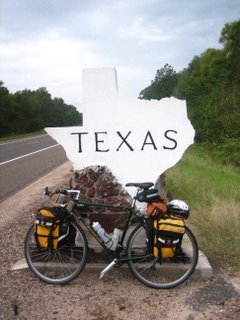
You reach the other side, and there is a modest green sign that reads "Enter Beauregard Parish." No sign welcomes you to Louisiana.
You are left with the feeling of exit, but only a vague feeling of entry. You are still afflicted by Texas’s resonating vibe, and although you know you’ve left, you wonder, will it ever leave you?

<< Home